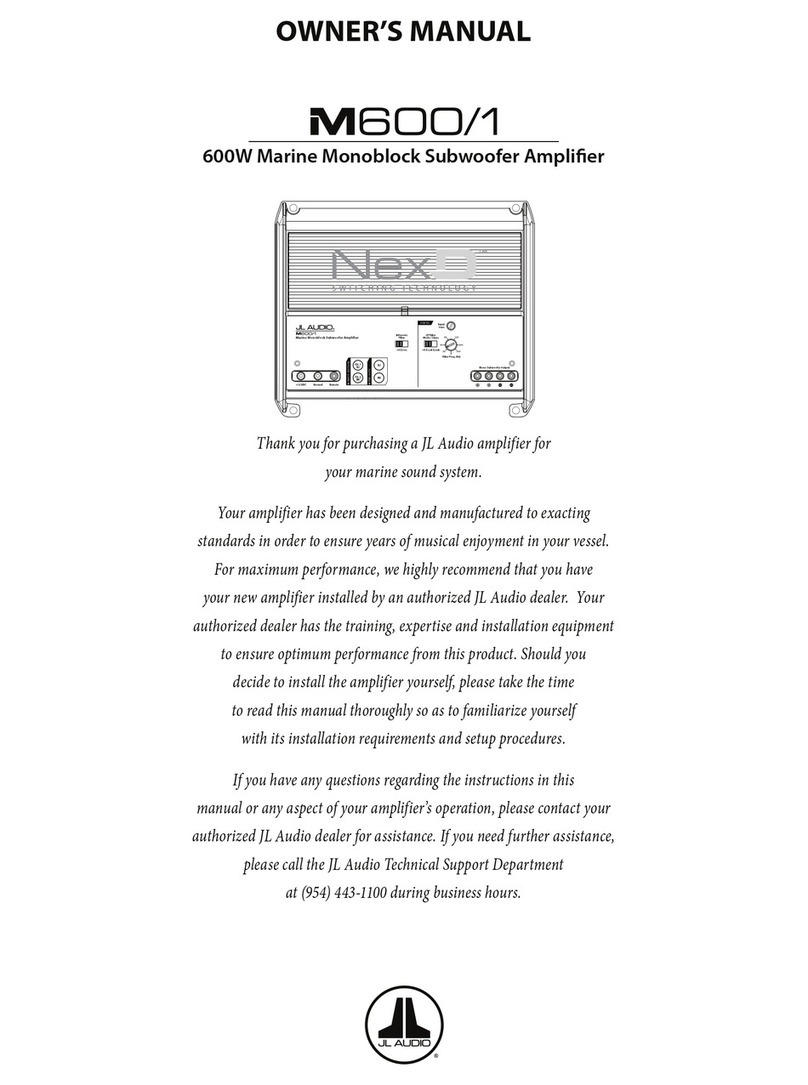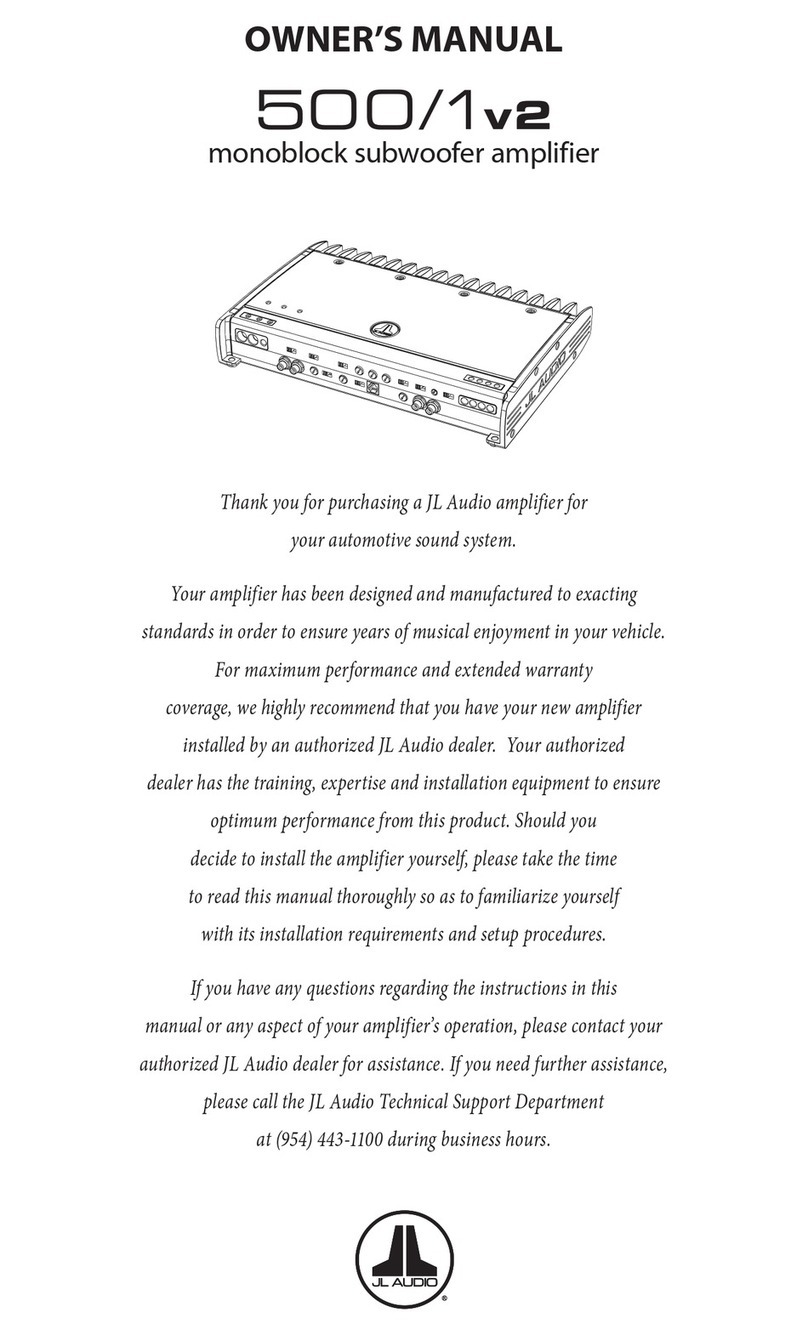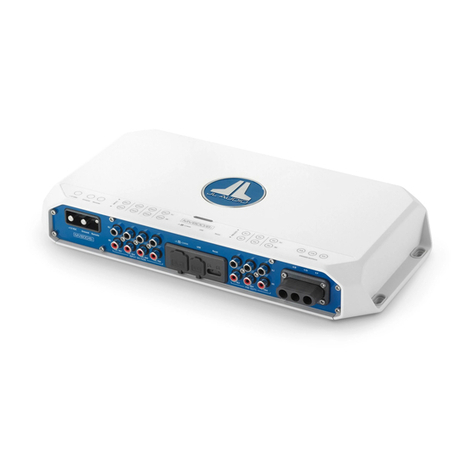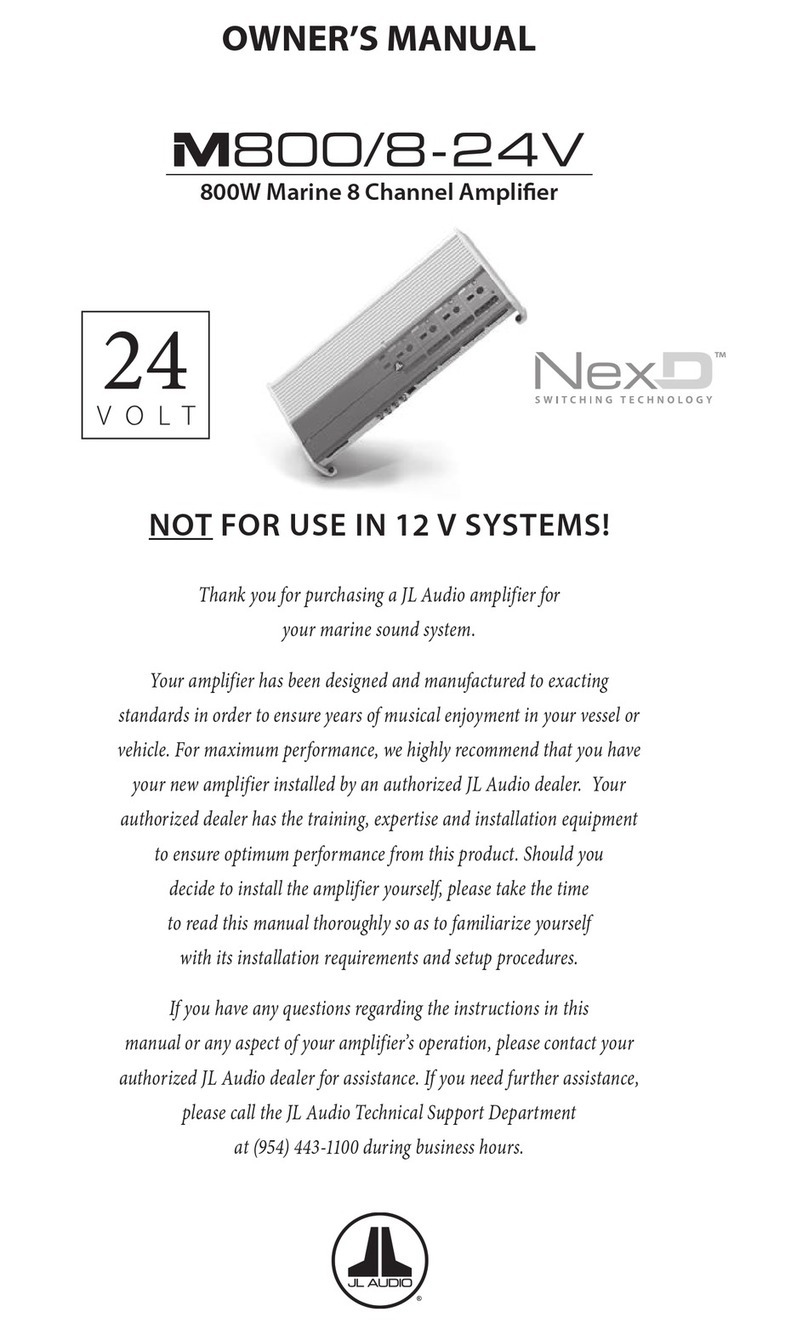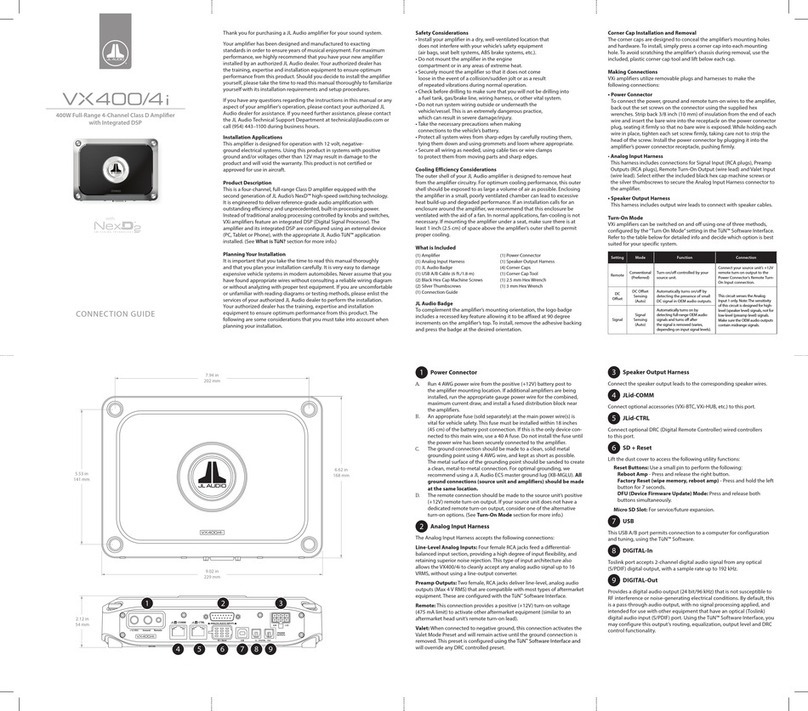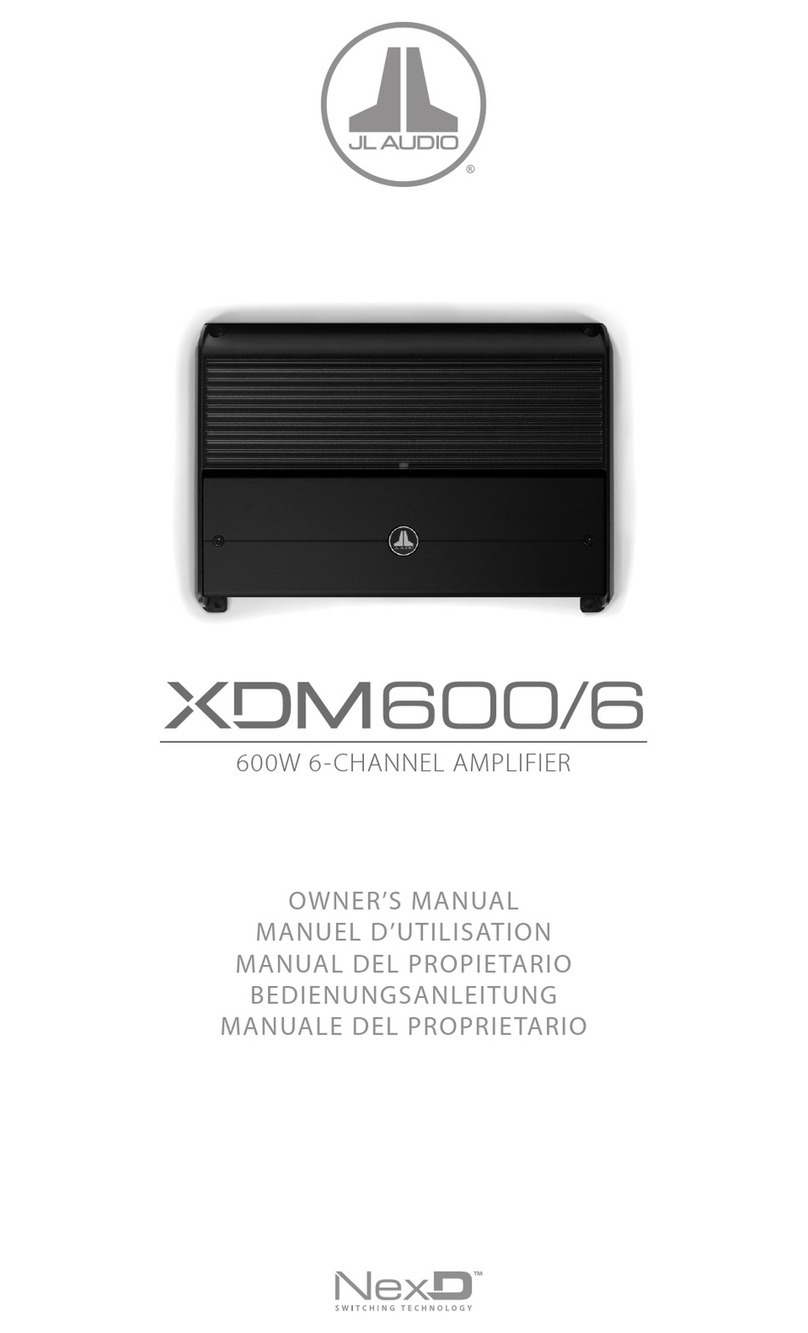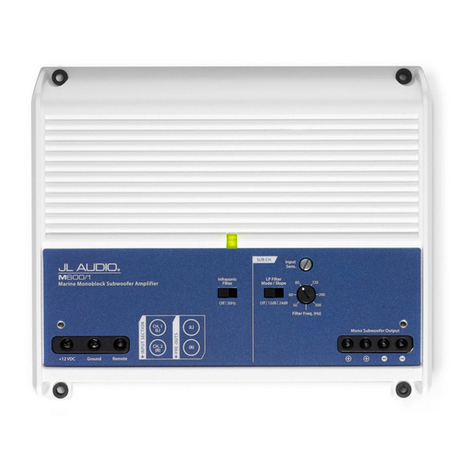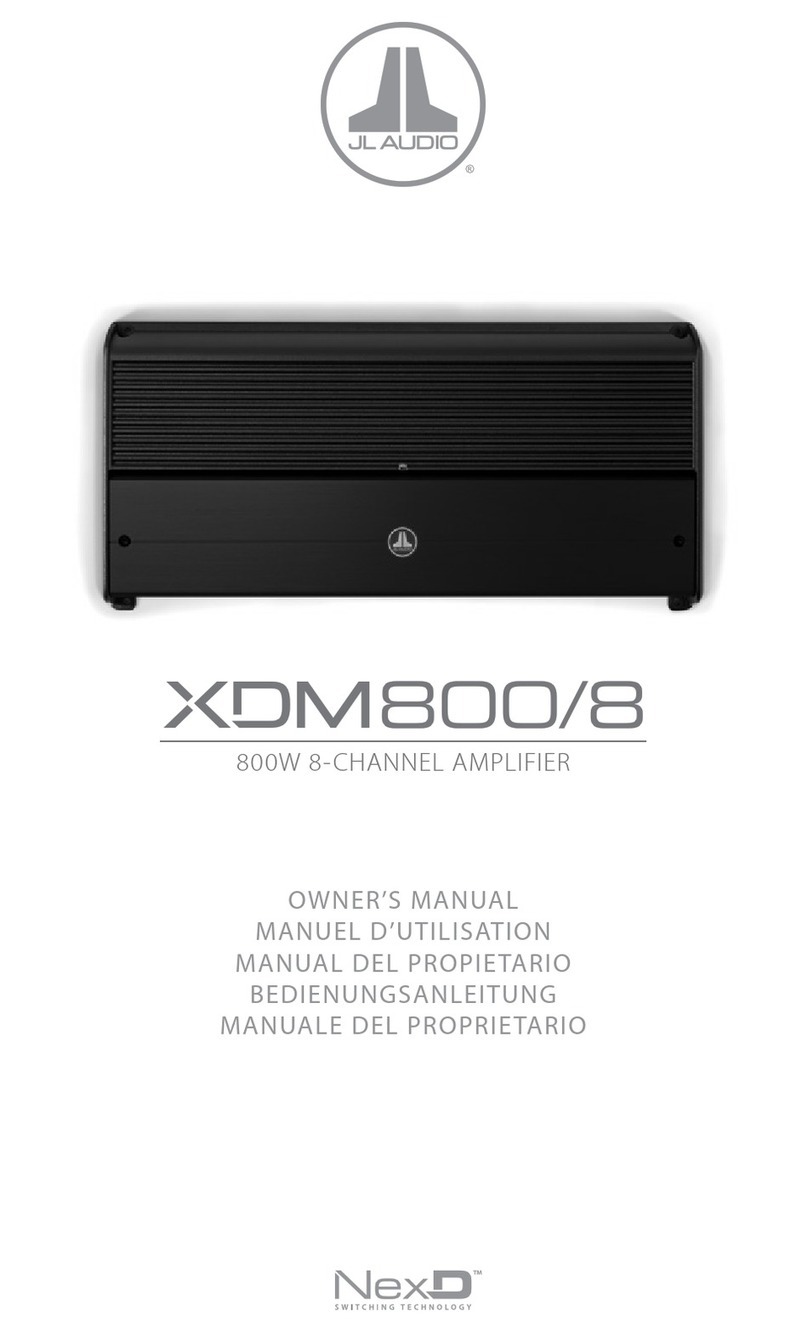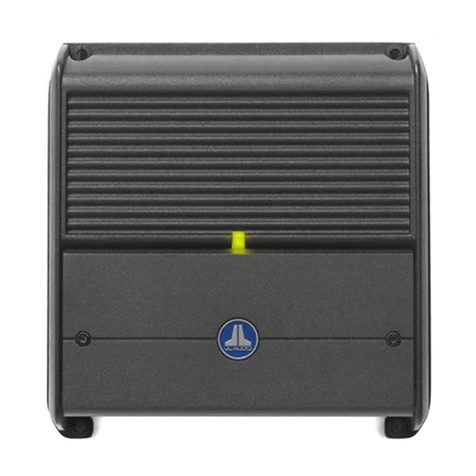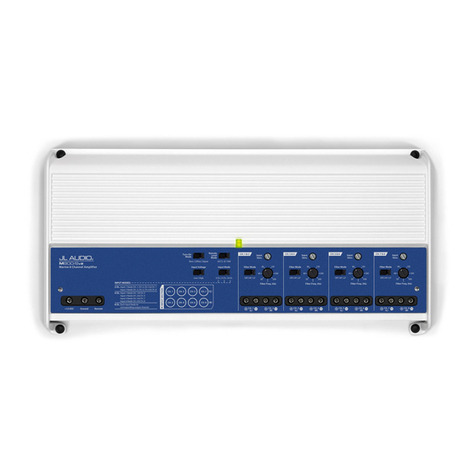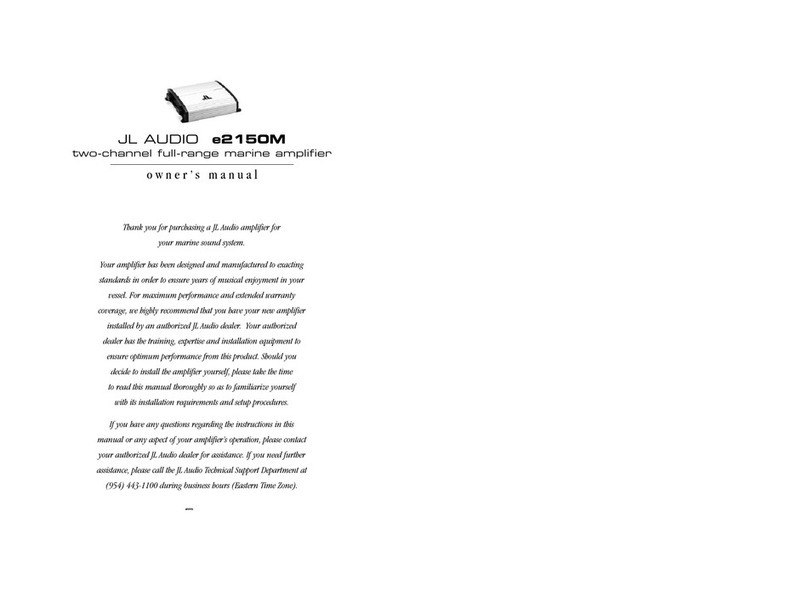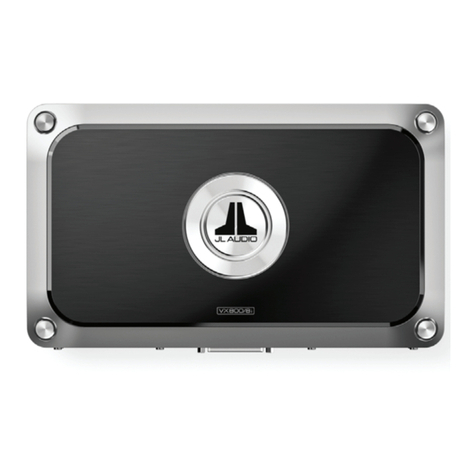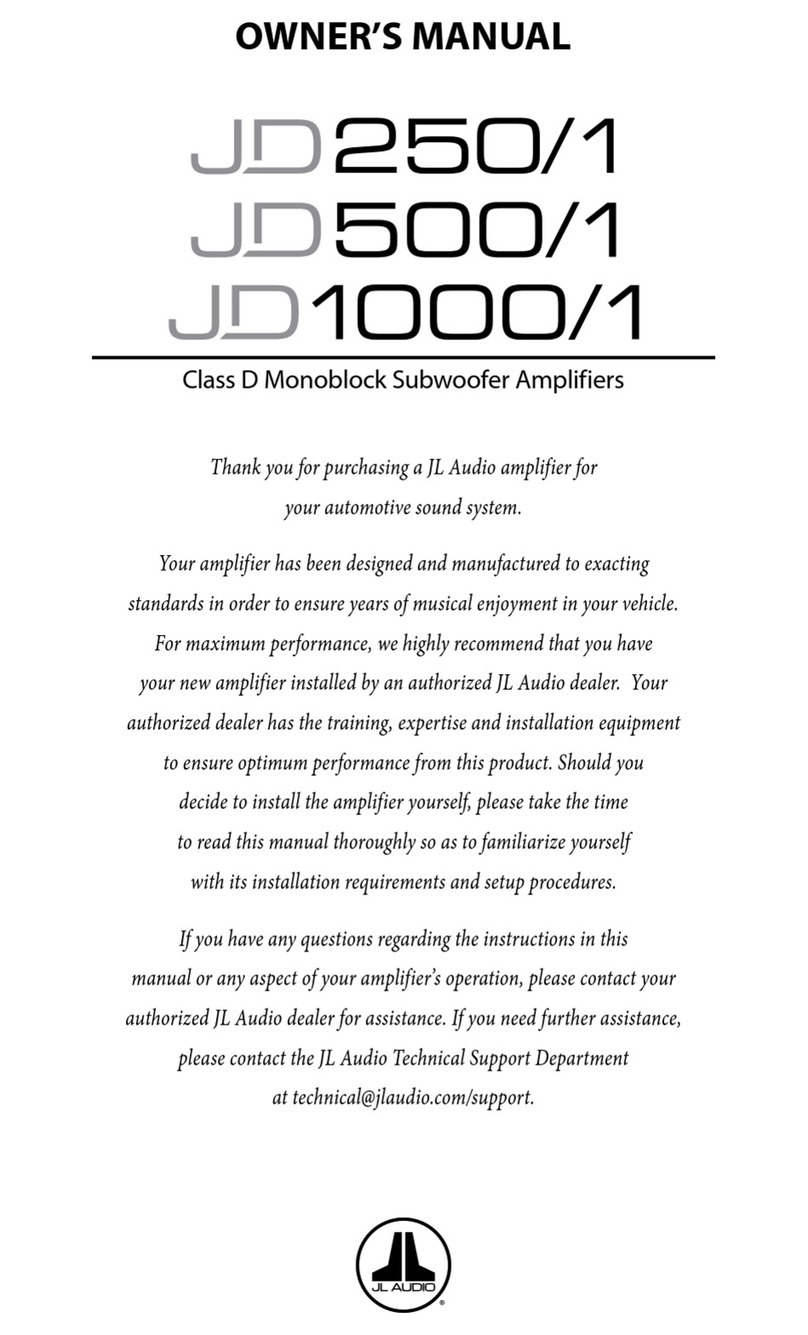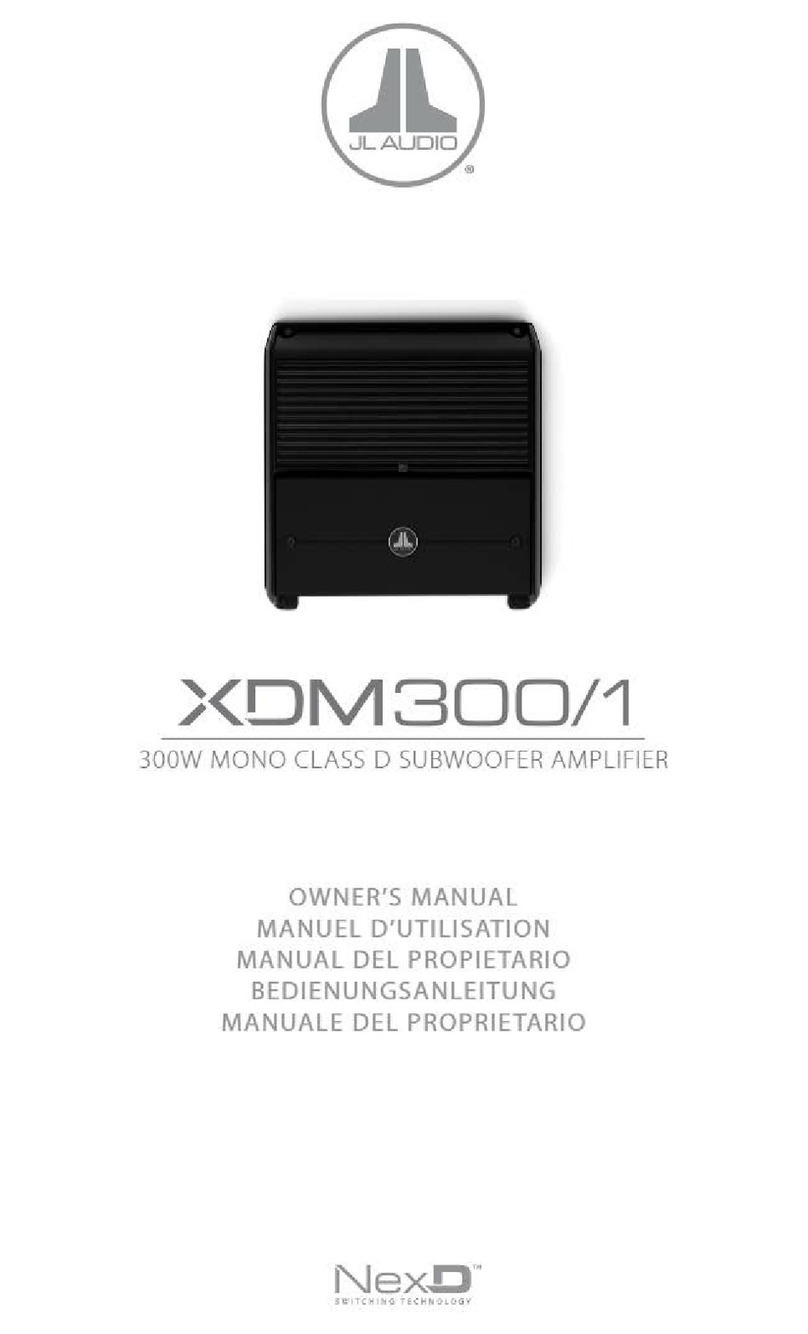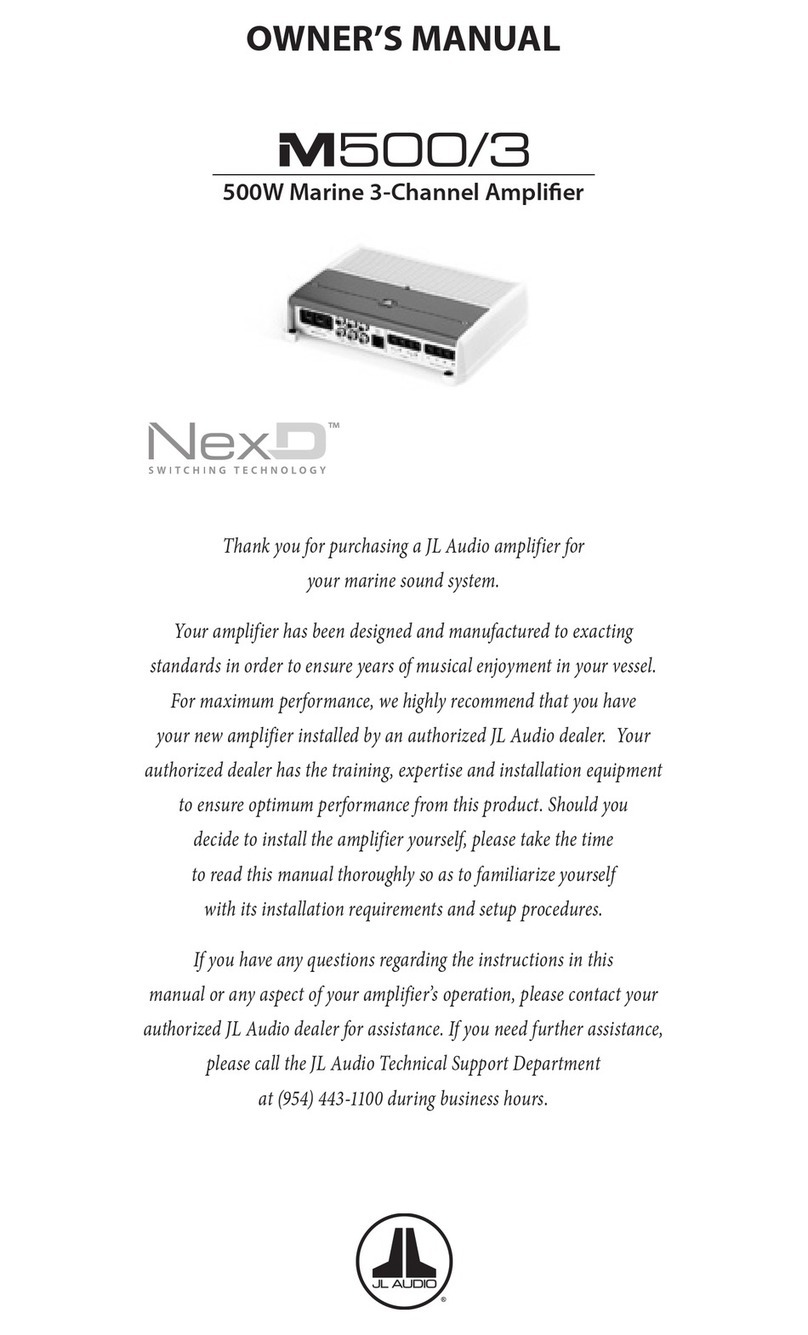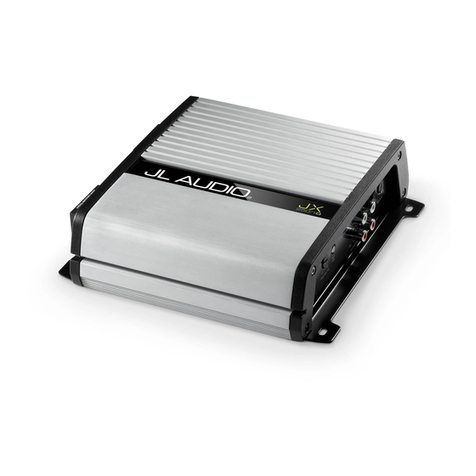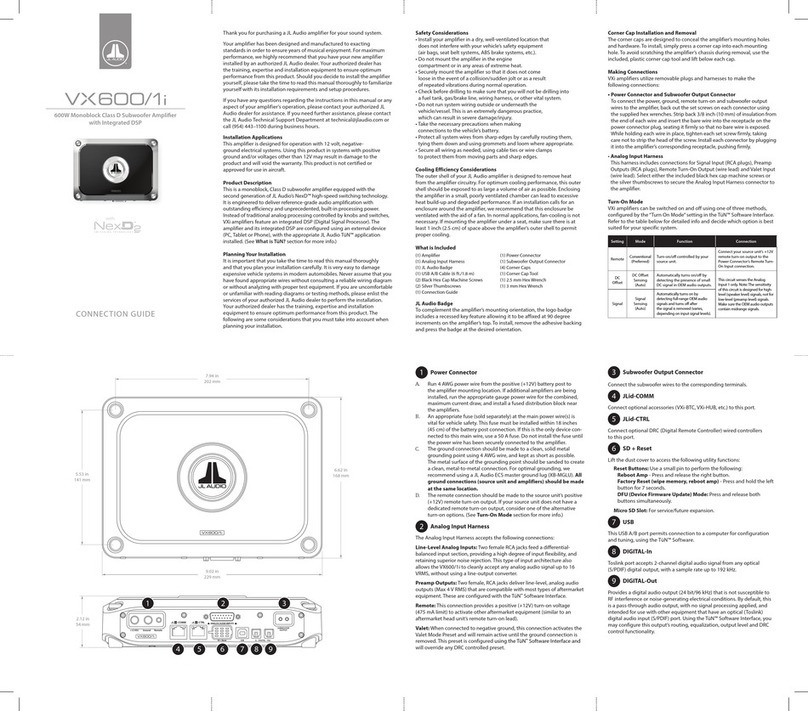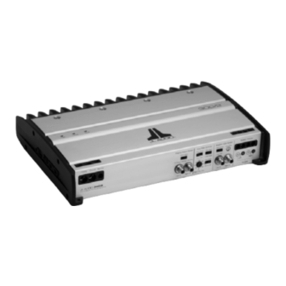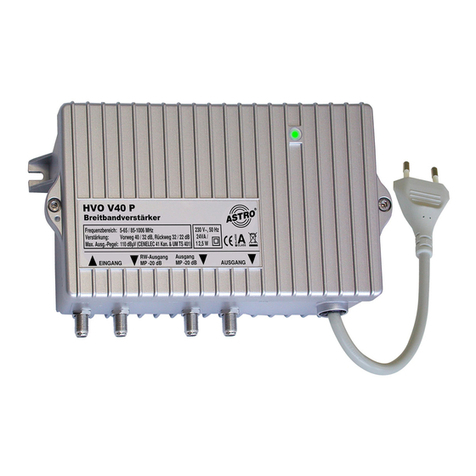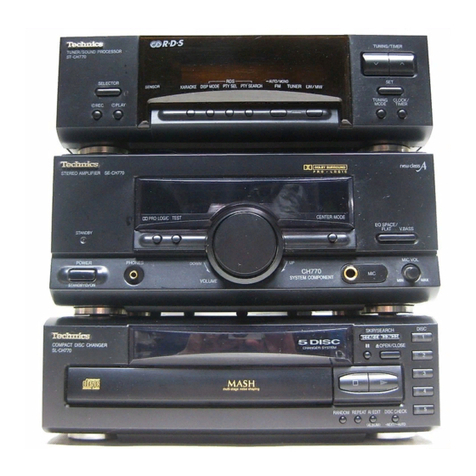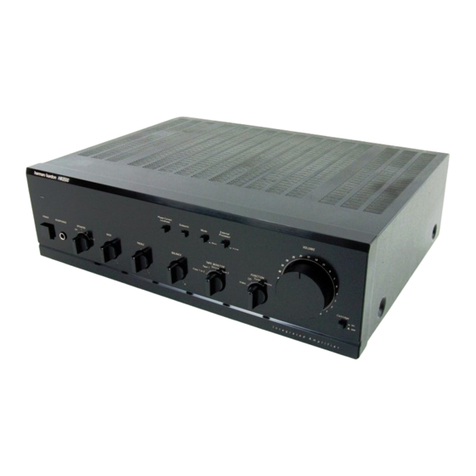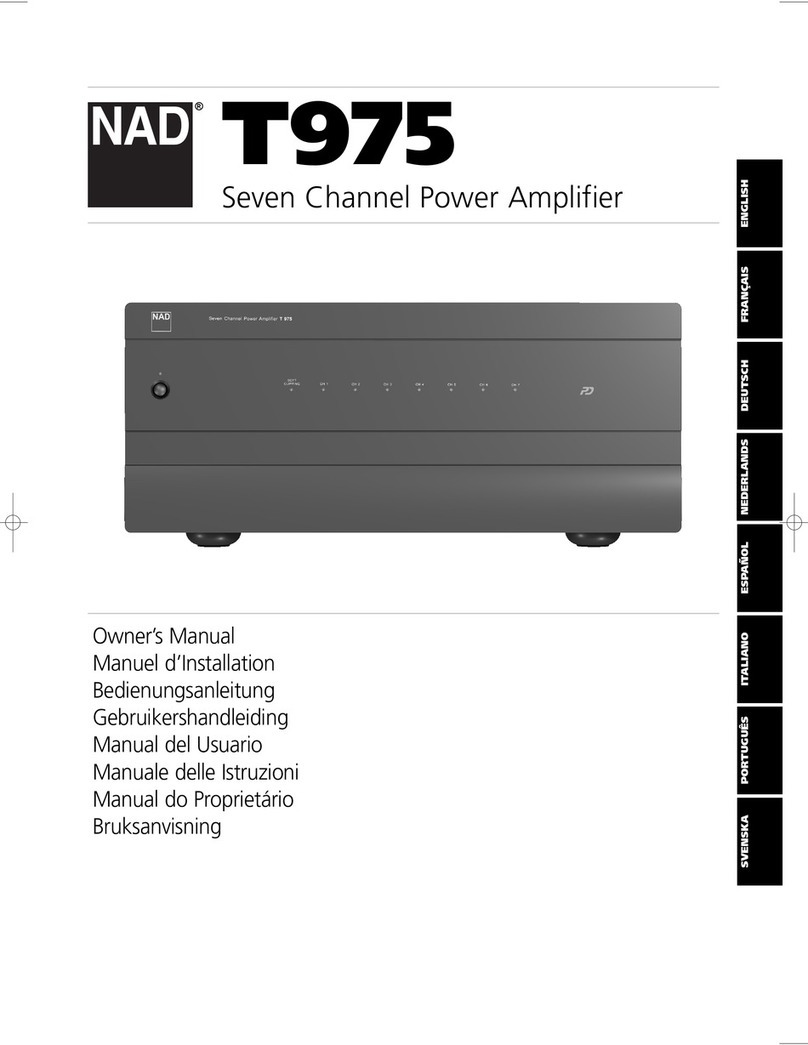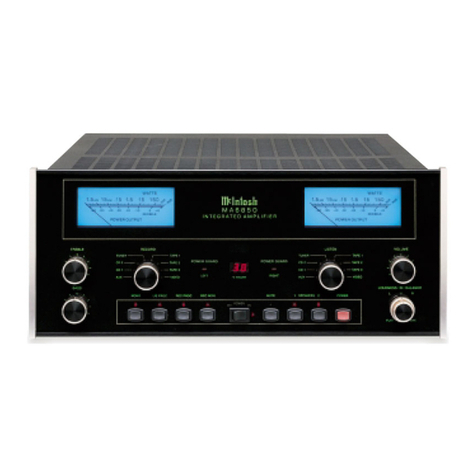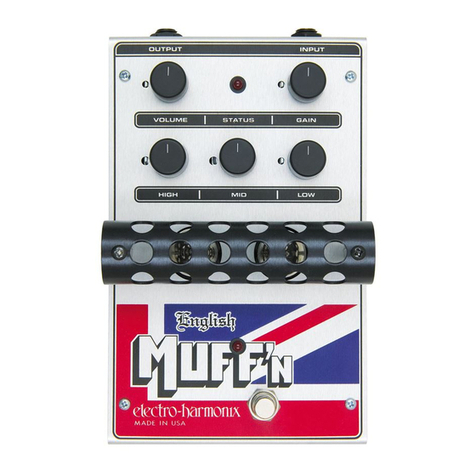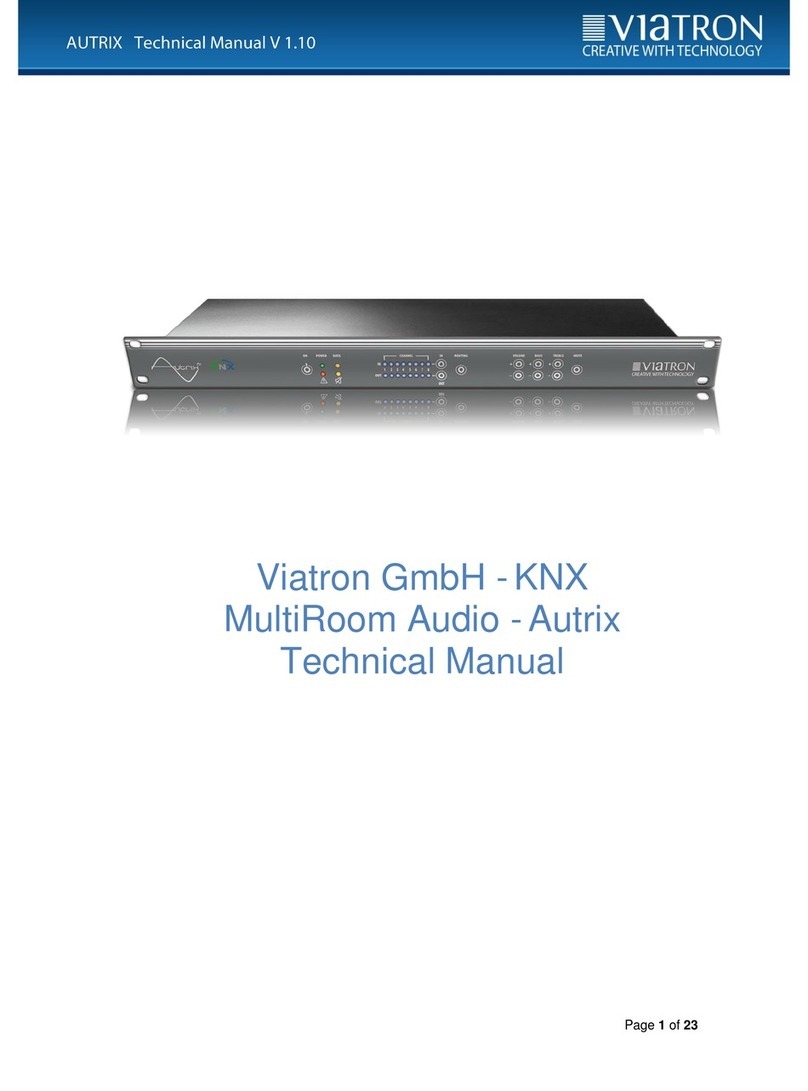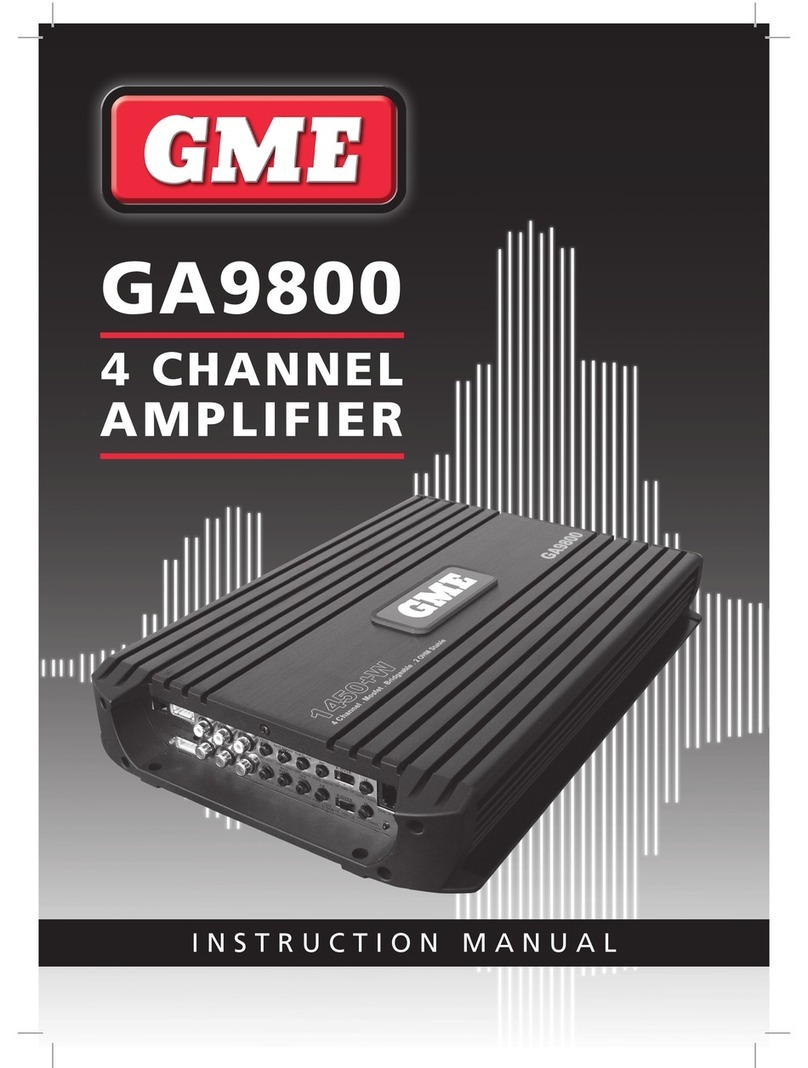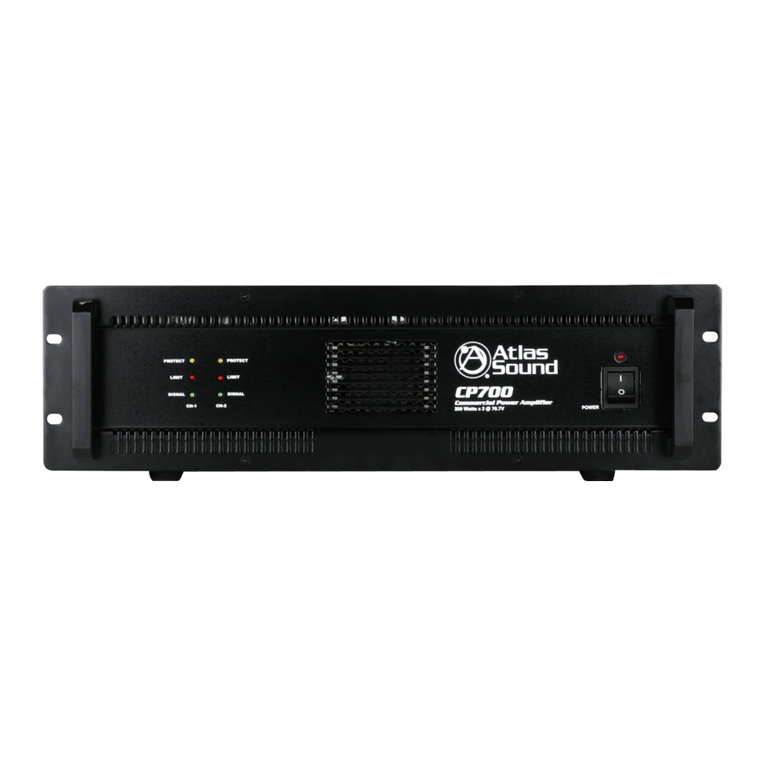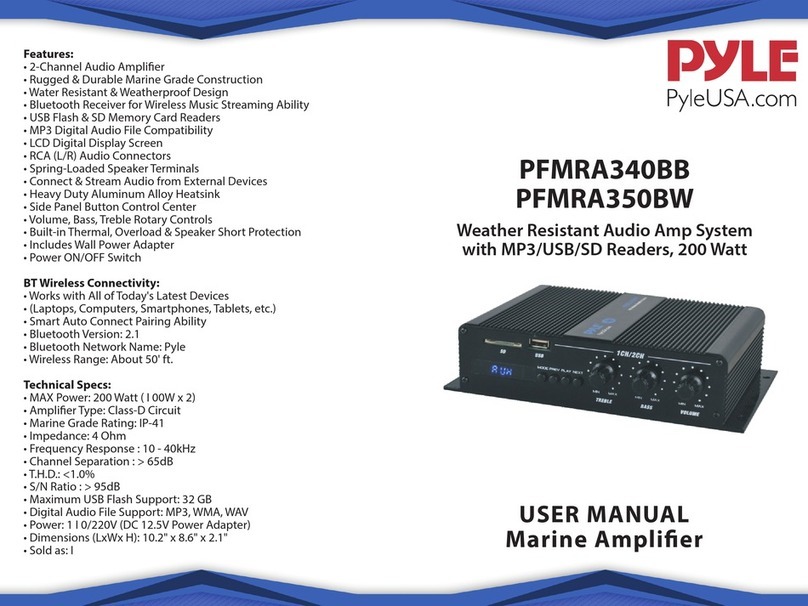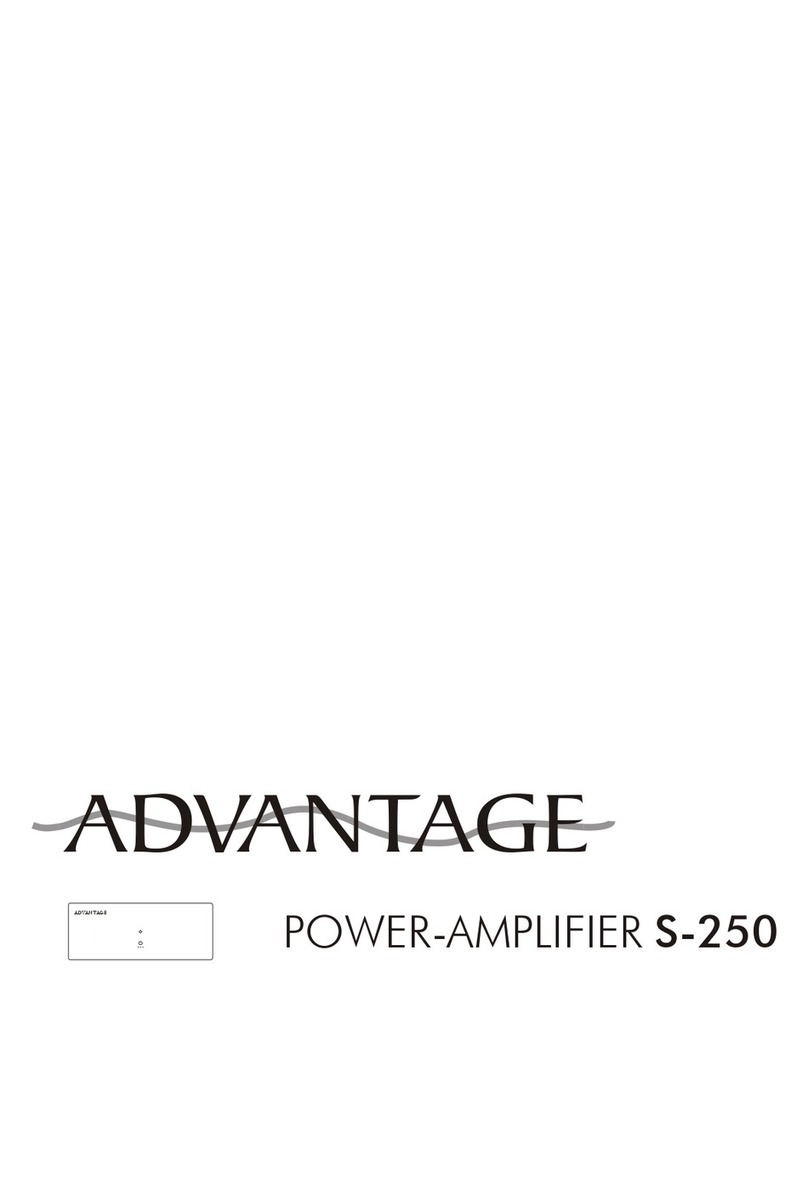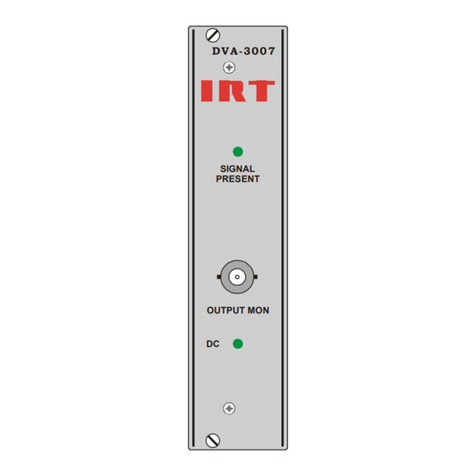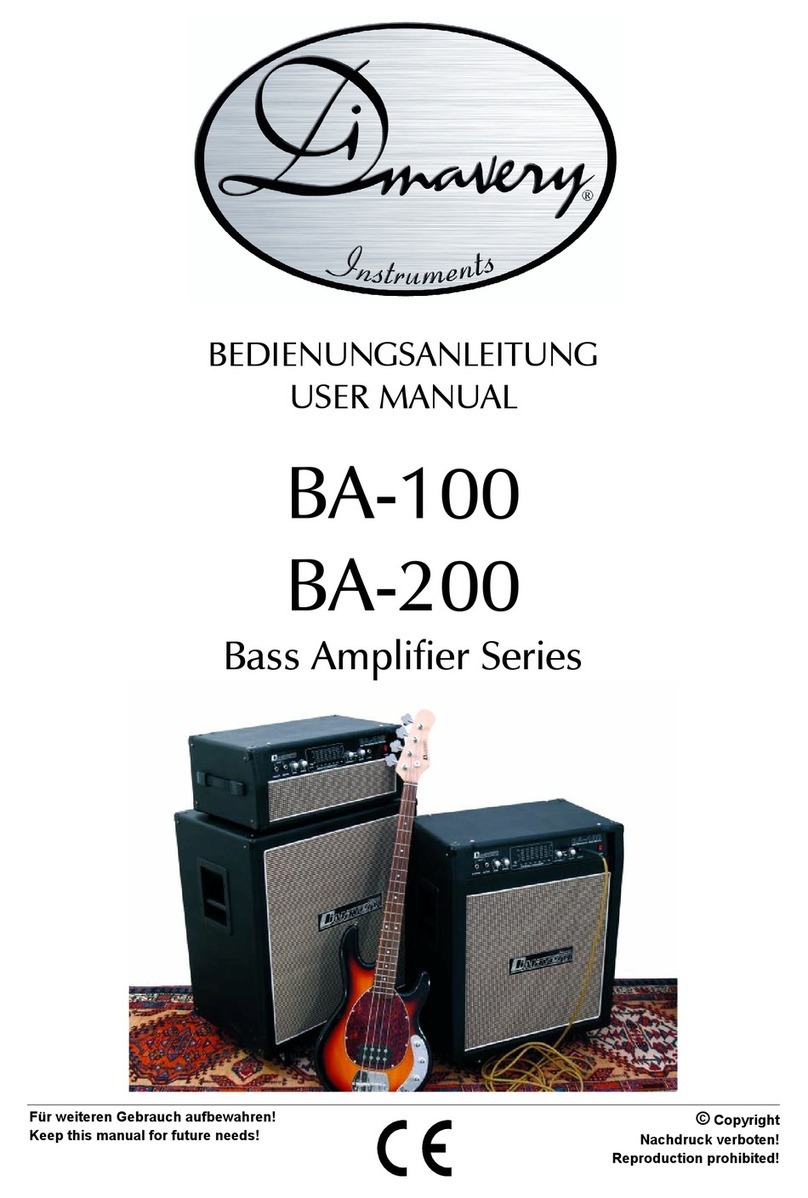4 | JL Audio - XD1200/1v2 Owner’s Manual 5
ENGLISH
POWER CONNECTIONS
Before installing the amplifier, disconnect the
negative (ground) wire from the vehicle’s battery.
This will prevent accidental damage to the system,
the vehicle and your body during installation.
5IF9%WTi+12 VDCwand
iGroundwconnections are designed to
accept 4 AWG power wire. 4 AWG is the
required wire size for this amplifier.
*GZPVBSFJOTUBMMJOHUIF9%WXJUI
other amplifiers and wish to use a single main
QPXFSXJSFVTF"8(PS"8(NBJOQPXFS
wire (depending on the overall current demands
of all the amplifiers in the system). This 2 AWG
PS"8(QPXFSXJSFTIPVMEUFSNJOBUFJOUP
a fused distribution block mounted as close
to the amplifiers as possible (within 12 inches
DNPGXJSFMFOHUI5IFGVTFEPVUQVUPG
the distribution block will connect to the
9%WXJUI"8(QPXFSXJSF+-"VEJP
ECS fused distribution blocks are recommended
9%'%#6BOE9%'%#6
Note: Smaller AWG numbers mean bigger wire
BOEWJDFWFSTB"8(JTUIFMBSHFTU"8(JT
smaller, then 4 AWG, then 8 AWG, etc.).
To connect the power wires to the amplifier,
first back out the set screw on the top of the
terminal block, using the supplied 2.5 mm hex
wrench. Strip 1/2 inch (12 mm) of insulation from
the end of each wire and insert the bare wire into
the terminal block, seating it firmly so that no
bare wire is exposed. While holding the wire in
place, tighten the set screw firmly, taking care not
to strip the head of the screw.
The ground connection should be made
using 4 AWG wire and should be kept as
short as possible, while accessing a solid
piece of sheet metal in the vehicle. The
surface of the sheet metal should be sanded
at the contact point to create a clean, metal-
to-metal connection between the chassis
and the termination of the ground wire.
For optimal grounding, we recommend the
use of a JL Audio ECS master ground lug
(XB-MGLU). Alternatively, a sheet metal
screw or bolt can be used with a star washer.
Any wires run through metal barriers (such
as firewalls), must be protected with a high
quality rubber grommet to prevent damage to the
insulation of the wire. Failure to do so may result
in a dangerous short circuit.
Many vehicles employ small (10 AWG -
6 AWG) wire to ground the battery to the
vehicle chassis and to connect the alternator’s
positive connection to the battery. To prevent
voltage drops, these wires should be upgraded
to 4 AWG when installing amplifier systems
with main fuse ratings above 60A.
FUSE REQUIREMENTS
It is absolutely vital that the main power
wire(s) to the amplifier(s) in the system be
fused within 18 inches (45 cm) of the positive
battery post connection. The fuse value at each
power wire should be high enough for all of the
equipment being run from that power wire. If
POMZUIF9%WJTCFJOHSVOGSPNUIBU
QPXFSXJSFVTFB"GVTF
If fusing the amplifier near its power
connections (when more than one amp is being
SVOGSPNUIFNBJOQPXFSXJSFVTFBO"GVTF
(MAXI™ big plastic-body fuse is recommended).
PRODUCT DESCRIPTION
5IF9%WJTBNPOPCMPDL
BNQMJGJFSVUJMJ[JOH+-"VEJP/FY%IJHI
speed switching technology to deliver
outstanding fidelity and efficiency.
5IF9%WDBOCFPQFSBUFEXJUIBXJEF
variety of source units and system configurations.
Its frequency response is limited to the range
CFMPX)[*UJTOPUEFTJHOFEGPSESJWJOH
midrange speakers or tweeters. Every aspect of its
operation has been optimized for low-frequency
amplification. For detailed specifications, please
refer to Appendix C (page 13).
TYPICAL INSTALLATION SEQUENCE
The following represents the sequence
for a typical amplifier installation, using an
aftermarket source unit or OEM Interface
processor (like the CleanSweep CL441dsp).
Additional steps and different procedures may
be required in some applications. If you have
any questions, please contact your authorized
JL Audio dealer for assistance.
1)%JTDPOOFDUUIFOFHBUJWFCBUUFSZQPTU
connection and secure the disconnected cable
to prevent accidental reconnection during
installation. This step is not optional.
2) Run 4 AWG power wire from the battery
location to the amplifier mounting location,
taking care to route it in such a way that it will
not be damaged and will not interfere with
vehicle operation. Use 2 AWG or larger power
wire and a fused power distribution block if
additional amplifiers are being installed with
UIF9%W
3) Connect power wire to the positive battery
post. Fuse the wire with an appropriate fuse
block (and connectors) within 18 inches (45
cm) wire length of the positive battery post.
This fuse is essential to protect the vehicle.
Do not install the fuse until the power wire
has been securely connected to the amplifier.
4) Run signal cables and remote turn-on wire
from the source unit to the final amplifier
mounting location.
5) Run speaker cables from the speaker systems
to the amplifier mounting location.
6) Find a good, solid metal grounding point
close to the amplifier and connect the
negative power wire to it using appropriate
hardware (use of the JL Audio ECS master
ground lug, XB-MGLU is recommended).
Use 4 AWG wire, no longer than 36 inches
DNGSPNUIFBNQMJGJFSUPUIFHSPVOE
connection point. In some vehicles, it may be
necessary to upgrade the battery ground wire.
(See page 5 for important notice).
7) Securely mount the amplifier.
8) Connect the positive and negative power
wires to the amplifier. A fuse near the
BNQMJGJFSJTOPUOFDFTTBSZJGUIF9%W
is the only device being run from the fused
main power wire. If the fused main power
XJSFJTTIBSFECZUIF9%WBOEPUIFS
amplifiers or devices, fuse each amplifier/
EFWJDFXJUIJOJODIFTDNPGXJSF
length, via a fused distribution block
or multiple individual fuse blocks/
on-board fuses.
9) Connect the remote turn-on wire
UPUIFBNQMJGJFSPSDPOGJHVSFUIFiTurn- On
ModewTXJUDIGPSBVUPNBUJDUVSOPO
10) Connect the input cables to the amplifier.
11) Connect the speaker cables to the amplifier.
12) Carefully review the amplifier’s control
settings to make sure that they are set
according to the needs of the system.
13)*OTUBMMUIFQPXFSXJSFGVTF"GPSB
TJOHMF9%WBOESFDPOOFDUUIF
negative battery post terminal. Install the fuse
"OFBSUIFBNQMJGJFSJGBQQMJDBCMF
14) Turn on the source unit at a low level
to double-check that the amplifier is
configured correctly. Resist the temptation
to crank it up until you have verified the
control settings.
15) Make necessary adjustments to the input
sensitivity controls to obtain the right
overall output and the desired balance
in the system. See Appendix A (page 12)
for the recommended input sensitivity
setting method.
16) Enjoy the fruits of your labor with your
favorite music.
